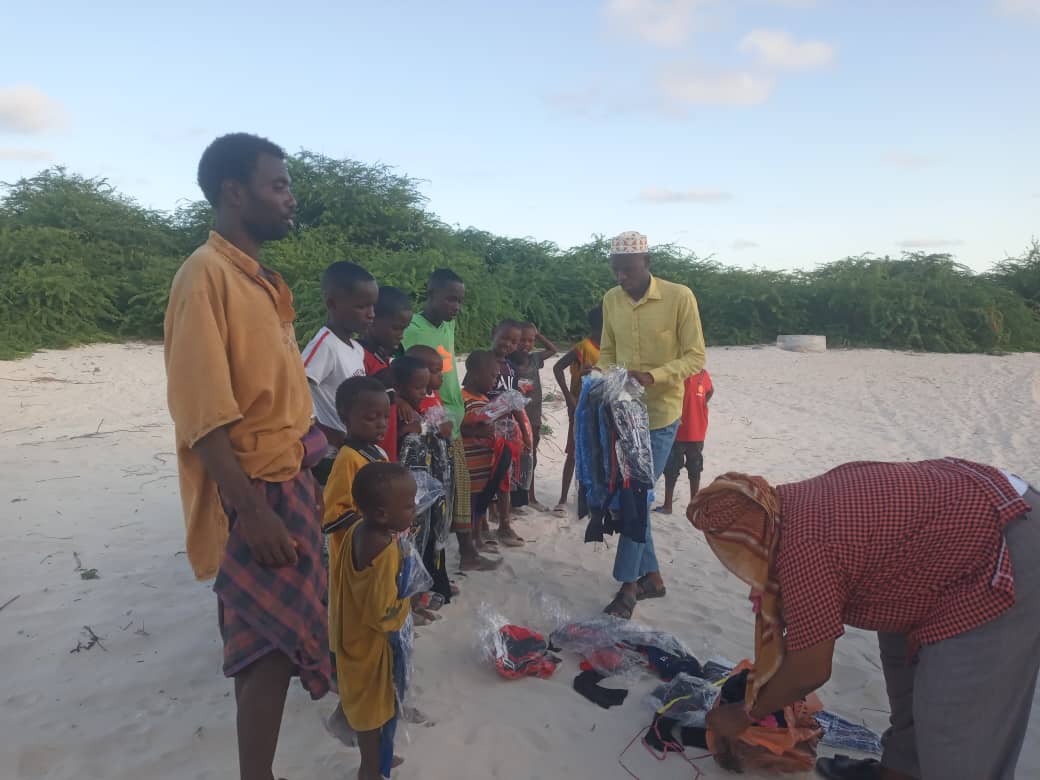DESILTING OF HULLOW WATER PAN THROUGH “CASH FOR WORK” INJECTS CASH INTO THE LOCAL ECONOMY.
By Mohamoud Duale and Abdi Omar
Rural Agency for Community Development and Assistance (RACIDA) is one of the active local non-governmental organizations operating in the expansive water deficient Mandera district. One of the divisions in Mandera where RACIDA has an ongoing project in Malkamarri in western part of the district. In its search for reliable local partner organizations, Cordaid regional office in Nairobi selected RACIDA as its partner in January 2006. Owing to devastating drought emergency at the time the main support given to RACIDA was in the area of emergency water provision, which went along way in saving thousands of peoples lives.
In Hullow location some 20 kilometres from the crocodile infested river Dau’a, One of the main options as water source in harvesting rainwater in pans. Besides polythene bag lined Hullow pan that provides water for domestic consumption, the second pan for livestock use has been filled with silts and it’s capacity to hold water drastically reduced. Consequently the pan could only meet water need of local livestock for 3 – 4 months after rains. It is with the aim of increasing the capacity of the pan that Hullow community approached RACIDA for support. As an agency-promoting community driven approach to development, RACIDA consolidated request for various communities in its operation area into a proposal submitted to Cordaid. Upon security of Cordaid funding under Drought Cycle management programme, RACIDA went back to Hullow community to work out implementation plan.
Given that the community has just emerged from what according to its elders is the worst drought in their living memory, the adoption of cash for work came as a big relief. According to Ahmed Alasow the chairman of the water pan, the desiltng work began on 3rd September 2006 and was completed before the short rains in the last week of October. The desilting was done through cash for work employed 36 young men directly on a daily basis with each earning an average of KES 115 per day.
Besides direct employment for young men, the project also created an opportunity for Hullow women group to generate income through provision of catering services at the project site. According to newly married 18 years old Safiya Shiekh, Hullow women group members organized themselves to provide food and tea for young men who worked at the pan. Each worker had a credit facility recorded in a book and at the end of each week the credit facility was extended after clearance of the previous weeks debt on receipt of payment from RACIDA through the project committee.
The makeshift kiosk sells Githeri (maize and beans), chapatti, mandazi and tea. Tea is the most popular and on average 150 mugs is sold in a day according to Safiya. The women group members have prepared a duty roster with a new member taking over the operation of the kiosk after every 2 days.
Following completion of the project and receipt of normal rainfall, the pan is filled to the brim with water. According to Hullow residents the water in the pan is adequate for livestock use for the next one year. Consequently crocodile attacks on herders and livestock will be a thing of the past. Time taken to water animals is also reduced and young men can now engage in other economic activities such as harvesting and selling of doum palm leaves.

Leave a Reply